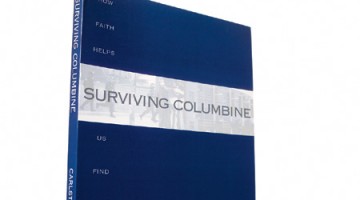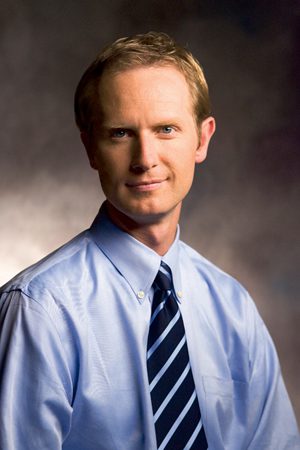The future is shaped by the accumulation of all our daily activities and disciplined efforts.
I know of a family who lived close to a large amusement park. Each time this family would drive by the park their young son would ask, “Daddy, can we go there?” The father would reply, “Maybe tomorrow we can go.” This interchange repeated itself again and again until finally, early one Saturday morning, the boy came running into his parents’ bedroom, jumped on the bed, and exclaimed with great enthusiasm, “Daddy, tomorrow is today!”

We become familiar with the Lord Himself and become His disciples be doing what He did: serve others.
This interesting play on words—“tomorrow is today”—illustrates a valuable point. Everything we hope to accomplish in the future, how we prepare for the responsibilities that will ultimately be ours, is really a function of what we do today. To a great extent the future is shaped by the accumulation of all our daily activities and disciplined efforts. In this sense, tomorrow truly is today.
May I suggest a few small and simple steps that, if taken daily, will contribute to your long-term happiness and ultimate success?
Seek the Spirit
I remember a defining moment while I was serving in the mission office in Chile. One night after dinner, my companion and I were helping the wife of our mission president clear the dishes before we went out to teach. Somewhat out of the blue, she asked us, “Have you felt the Spirit today?” Without waiting for our answer, she began teaching us that one of the most important ways of confirming that we are on the right track is by feeling the Spirit. She emphasized that, given all the challenges and distractions in life, we need daily reassurance that we are both worthy of and guided by the Holy Ghost. She invited us to never go to bed at night without having recognized the feelings of the Spirit sometime that day.
From my own experience, I have learned that dedicating the effort to nurture feelings of personal revelation is challenging at best. Like a resolve to exercise every day to become physically strong, our commitment to daily prayer and scripture study to become spiritually strong must be equally steadfast and absolute.
Work with Purpose and Balance
Several years ago Elder Russell M. Nelson of the Quorum of the Twelve Apostles was asked how to balance the demands of family, Church, profession, and personal interests. Elder Nelson first acknowledged that finding a perfect balance is virtually impossible. He then compared trying to balance competing demands to flying an airplane. He explained that at times certain aspects of life will cause the plane to tilt to one side. Later, other demands may cause the plane to tilt the other way—back and forth, side to side, as we address the many challenges of life. The key, he explained, is simply not to crash.
He recommended that we invite someone, perhaps a spouse or other trusted friend, to always be there, hands firmly planted on the control stick to help bring us back into balance when necessary. Finally, Elder Nelson stated that everything we do in life—how we spend our time, how we invest our talents—should be connected to bringing us closer to the Savior.
Serve Others
My final suggestion relates to the statement “Enter to learn; go forth to serve.” Interestingly, we become familiar with the Lord’s voice by immersing ourselves in the scriptures (see D&C 18:35–36), yet we become familiar with the Lord Himself and become His disciples by doing what He did: serve others (see Mosiah 5:13). Seeking daily opportunities to serve those around us brings us closer to the Savior and to a deeper understanding of life’s real purpose.
I share my personal witness that what Heavenly Father has in store for you begins now. Indeed, your future will be blessed as you come to understand that what you do each day shapes who you will become—that tomorrow truly is today.
This article is adapted from a commencement address given Aug. 11, 2011, by Elder Craig C. Christensen of the Church’s First Quorum of the Seventy.









